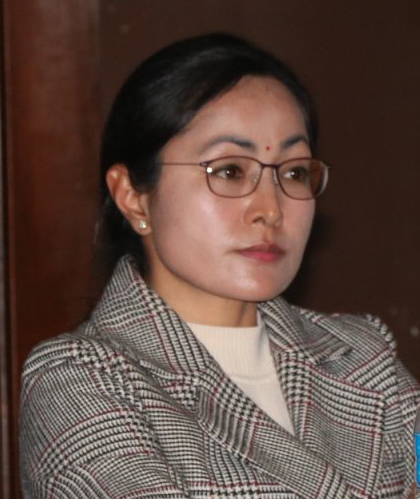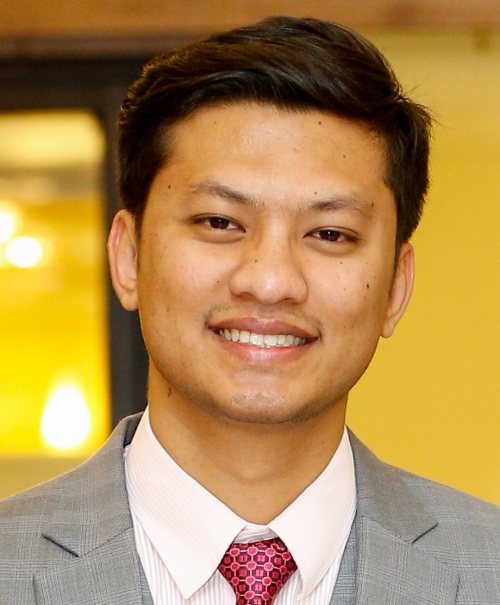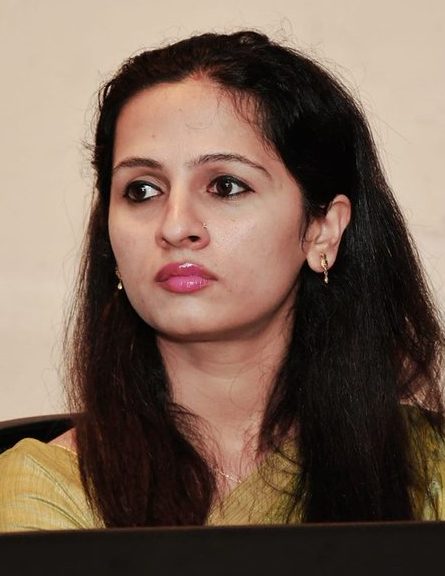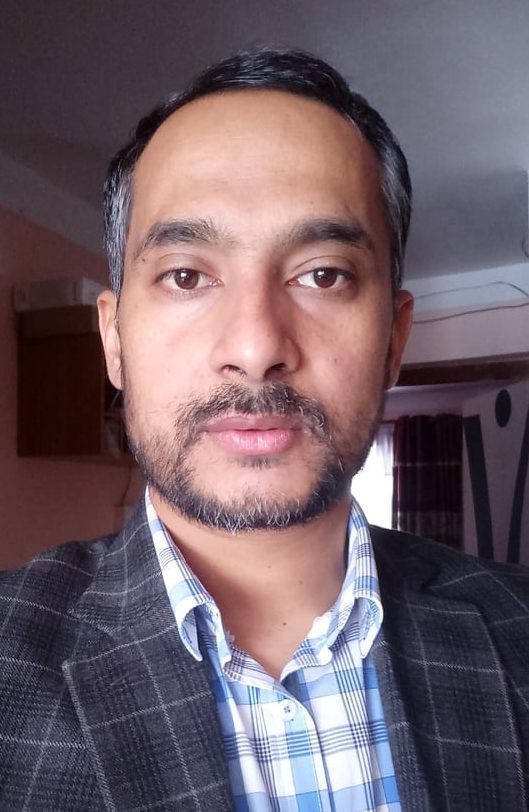– Roshee Lamichhane
Among several seemingly innocuous and off-beat questions and a few unexpected ones that were shot at me in my one-hour interview for the position of Assistant Professor last year in July 2019, there was one that really made me reflect: “What made you join the University?”
Well, for me, as someone who had prematurely left behind the corporate corridors, this question was important for at least one reason: to understand myself better. Lesser it may be, but the three years of corporate tenure at Chaudhary Group and earlier in Hyderabad, and exposure before switching over to academia in the budding years of my career were replete with wide and varied opportunities.
When I left a corporate job to pursue a noble career like teaching, there was certainly a reason behind it. Simply, I took a pause and reflected as to why I should in the first place make that decision and move. I was never afraid of experimenting something new. I know life gets boring when I decide to stay within the limits of what I already know. I wanted to be hopeful, optimistic even under pressure. Subsequently, I stayed firm and rooted to my decision till date. Today, I am able to be at peace with myself.
Despite the fact that jobs in the corporate sector are highly demanding in nature, prospects- and growth-wise, it has more potential than teaching in a school, like many would perceive. When I had taken such a decision to join teaching by leaving the corporate world, I had definitely some vision of myself and also the new profession. When I got into the teaching profession, during the initial days, I was confident that my immediate future would definitely get better. Today, I am getting a good work-life balance in teaching. When I was satisfied with the way the things started unfolding in academics, then teaching needed me more than the corporate world. It is an indisputable fact that one draws more satisfaction where one feels needed. Mine was a good selection—choosing a noble profession. Greed for the corporate sector would have distracted me from pursuing my M. Phil and going on to complete my Doctorate.
Fortunately, in the initial stage itself, I could decide early and clearly as to why I should join academics in general, and get associated with a University in particular. For ‘young and talented individuals,’ I heard everywhere, there couldn’t be a better pedestal and seat of teaching and learning than Kathmandu University, which is undoubtedly one of the most reputed and prestigious Universities in Nepal. So, I decided to join the ‘young and talented’.
Of course, I never lost much time before deciding to join KU SOM as a Lecturer five years ago. Moreover, I had total clarity that I needed to complete my M Phil before taking the steady path to pursue my PhD. I am pretty confident now that being in the tenured role should ensure a smooth and steady path to Professorship as well. In hindsight, I feel exulted for having made the right decision and taken the right path in the most productive years of my life and early stages of my budding career.
Joining and working as a Lecturer in a contract role was not an easy ride, but proved to be a roller coaster in my case. At the lowest rung in the academic hierarchy, there is much to learn and so much more to offer to the University despite one’s limited knowledge and exposure. Most of the expectations from my role initially were service-related such as taking minutes of meeting, or doing the administrative part of organizing events, or working as an emcee (because you are the youngest in the team, and most often a female is expected to don on this role!)
Putting on several caps and assuming several roles that get assigned, almost on an impromptu basis, has a huge plus. It does build the individual’s confidence. On the flip side, superiors/bosses continue to place demands to perform the very same perennially just because you proved yourself to be efficient by living up to their expectations. As the saying goes, “there is always a premium on efficiency”. The individual concerned ends up paying a huge opportunity cost. Initial phases of an academician’s career always come with a rider: be prepared to sacrifice a major portion of your prime and productive time while assuming the twin roles of teaching and research along with the service component of the job.
Despite having been promoted to the post of Assistant Professor in the ladder, I am required to manage the service role as an academician but with greater focus primarily on research and teaching. Doing meaningful research, writing cases rooted into and having a bearing on local contexts, writing on various media, speaking on various platforms within one’s domain should have precedence over other regular activities. Engaging in sponsored research and scouting for consulting projects should be another priority. After all, to mature as a well-rounded academic professional, engaging oneself simultaneously with multiple tasks becomes a necessary thing. More importantly, progressing to the next stage in the ladder becomes facile if you make doing PhD only your ultimate priority and pursuit.
Having successfully faced the challenge of joining a solemn profession and becoming a life-long academician, I am totally aware that my role now as Assistant Professor has widened. That would definitely entail undertaking meaningful initiatives such as partnership and cooperation with various Universities across the world. As a Placement Cell coordinator, managing internships and final placements to the MBA and BBA graduates is equally paramount. Among several other parameters that define the overall image of a B-School, the importance of the placement records need not be exaggerated. The next item in my professional agenda, now, would be to widen the reach and network of my Placement Cell and our alumni network across seven other Schools that come under KU thereby facilitating the potential graduates and prospective recruits in obtaining the job of their choice officially through formal channels. Besides my role as Faculty Associate at Enterprise and Management Development Program (EMDP), I aim and aspire to bring in more nationally recognized consulting projects thereby becoming a steady revenue earner for the University as well.
What I feel and believe is, when a human being matures as a teacher, new experiences bring him/her new sensitivities and flexibility. Teaching profession is for all those who are eager to make a difference and cause a positive impact on learners in particular and society in general! It is for people who were inspired by their own teachers earlier in their education and want to remember them for an entire lifetime, long after school is over. Hence, my earnest request to graduating management students, especially the young females, is to seriously consider and take up teaching as a career option.
To end with a power quote by John Dewey: “Education is a lifetime process with no true beginning or ending. Education consists of experience, environment, socialization and communication. Education is not preparation for life; education is life itself.”
[The author is associated with School of Management, Kathmandu University.]



